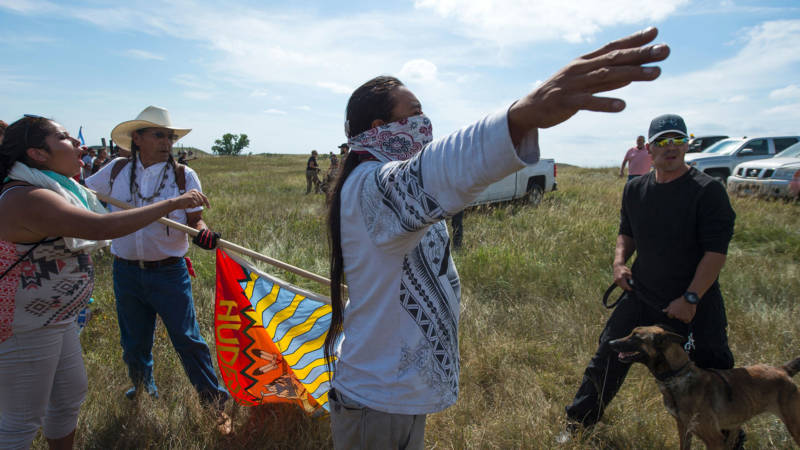On Friday, a federal judge denied a Native American tribe’s motion to halt construction of a $3.7 billion oil pipeline along the Missouri River. However, immediately after the ruling, the federal government ordered a pause in construction on the disputed section, and urged the pipeline company to do the same. The Standing Rock Sioux Tribe claims the 1,172-mile, multi-state Dakota Access Pipeline would run through ancestral lands and potentially contaminate their water. Protests around the pipeline have drawn support from 200 Native American tribes, plus celebrities and activist groups, and sparked some violent clashes. North Dakota’s governor even kept the National Guard on standby for Friday’s ruling. We discuss the ruling and its implications as the conflict continues to unfold.
Judge Rejects North Dakota Tribe's Request to Stop Work on Oil Pipeline, Government Still Halts Construction
27:59

A Native American protestors holds up his arms as he and other protestors are threatened by private security guards and guard dogs, at a work site for the Dakota Access Pipeline (DAPL) oil pipeline, near Cannon Ball, North Dakota, September 3, 2016. (Photo: Robyn Beck/AFP/Getty Images)
Guests:
Jan Hasselman, staff attorney, Earthjustice
Jack Healy, correspondent, New York Times
Craig Stevens, spokesman, "Midwest Alliance for Infrastructure Now"
Sponsored